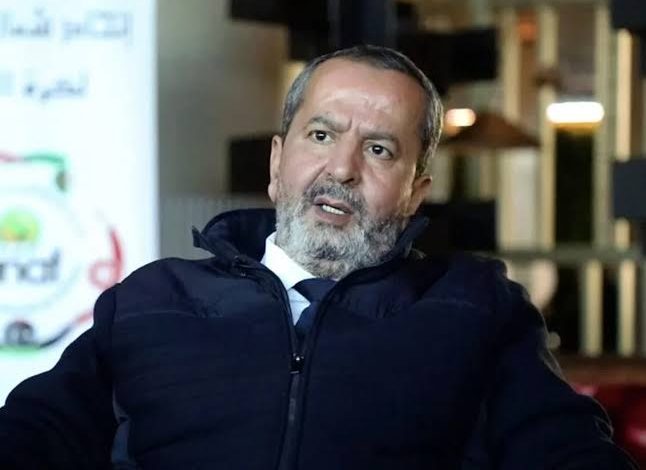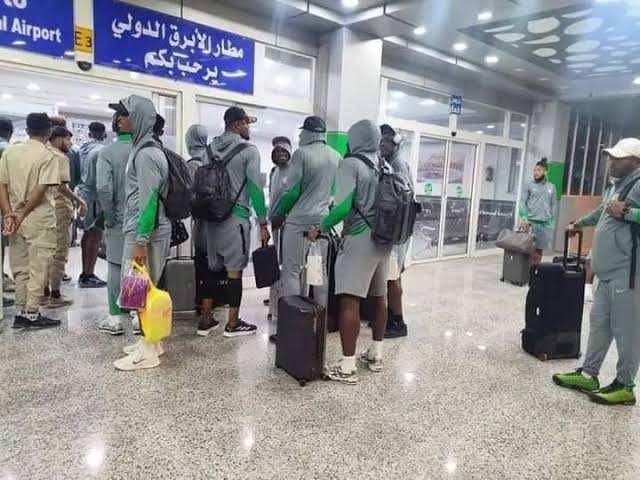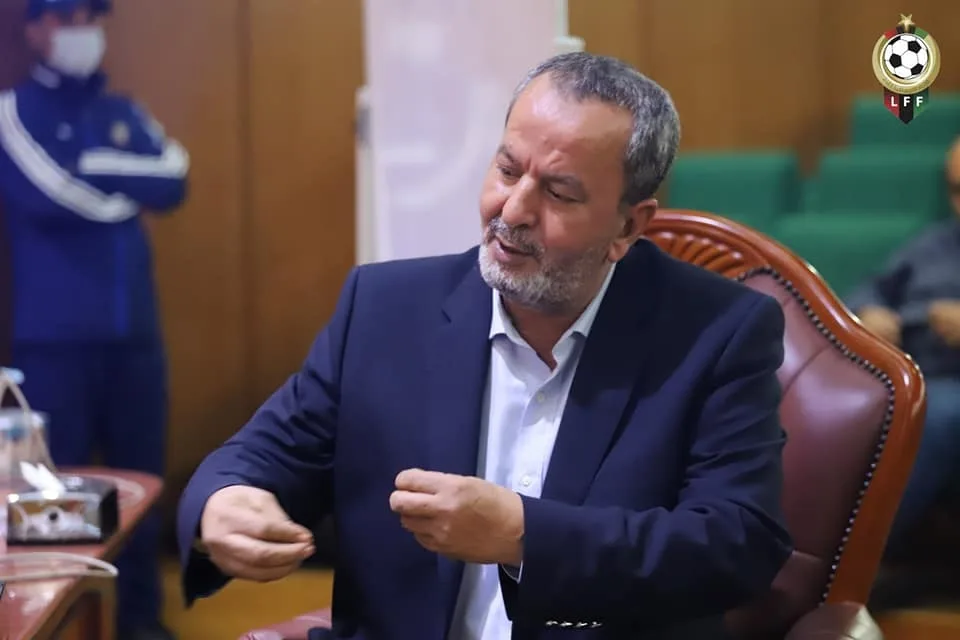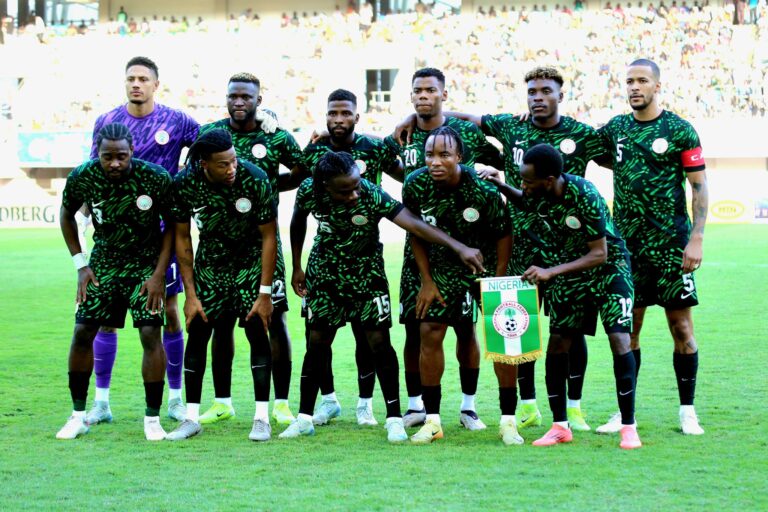Okay, so grab your coffee, because this one’s a doozy! Imagine flying to another country for a crucial match, and instead of being welcomed with open arms, you’re hit with—how do I put this gently?—a hospitality disaster. That’s exactly what happened when Nigeria’s Super Eagles arrived in Libya, leading to an international football saga that saw the President of the Libyan Football Federation (LFF), Abdelhakim Al-Shalmani, step down.
It’s not every day you see the head of a national sports body resigning amid a storm of accusations from another country’s team. But here we are. Let’s dig into what happened, why it matters, and what this might mean for the future of African football.
The Background Story
Before we get into the juicy details, let’s set the scene. The Libyan Football Federation (LFF) is responsible for overseeing football activities in Libya, from grassroots to national-level competitions. Abdelhakim Al-Shalmani had been at the helm, trying to navigate the often rocky waters of sports administration in a country that’s seen more than its fair share of challenges.

The Super Eagles’ Arrival: Not Exactly a Red-Carpet Reception
So, the Super Eagles land in Libya, ready to do what they do best—play some football. But instead of receiving five-star treatment (or at least basic courtesy), the team reportedly faced what they described as “inhumane treatment.” Now, we’re talking things like poor accommodation, subpar facilities, and a general sense of neglect. To be fair, nobody’s expecting luxury, but some of the complaints sounded straight-up disrespectful.

Nigeria’s sports authorities were quick to voice their concerns, with even the Federal Government stepping in to say they were keeping an eye on the situation. There’s nothing like a bit of diplomatic tension to make things interesting, right?
What Led to Al-Shalmani’s Resignation?
The Breaking Point: Accusations and Denials
The accusations from the Super Eagles sparked a wave of reactions. It wasn’t just the Nigerian football community that was upset; the news spread quickly across African sports circles. Now, here’s where it gets tricky. The LFF and Al-Shalmani claimed that the situation was being blown out of proportion, with some officials pointing out that Libyan teams had faced similar issues in Nigeria but chose not to make a fuss.

But it’s clear that this time, the issues couldn’t just be swept under the rug. The pressure was mounting, and during a routine LFF meeting, Abdelhakim Al-Shalmani did what many didn’t see coming—he announced his resignation. There wasn’t a dramatic speech or anything, just a quick exit, leaving everyone to speculate: Did he jump, or was he pushed?
Why Did He Step Down?
If you’re thinking this was just about a few bad hotel rooms, think again. Resignations like these don’t happen unless there’s a bigger picture at play. Al-Shalmani’s decision might have been driven by:
- Mounting Pressure: The backlash from the Super Eagles incident was massive. Criticism was pouring in not just from Nigeria, but from various corners of the African football community.
- Internal Politics: Let’s be honest, sports federations are often hotbeds of internal conflicts. Maybe this controversy was the final nudge he needed to step down.
- Calls for Accountability: Sometimes, taking responsibility means stepping aside. Whether Al-Shalmani wanted to be a scapegoat or genuinely felt it was time for new leadership, we’ll never know for sure.
The Fallout: Reactions and Broader Implications
Reactions from the Libyan Side
The LFF tried to play down the situation. They released statements suggesting that such logistical issues were not uncommon and pointing fingers right back at Nigeria. Essentially, their message was, “Hey, it happens. Let’s move on.” But you can’t just brush off accusations like these without raising a few eyebrows.
Nigeria’s Response: Not Taking It Lightly
Nigeria, on the other hand, was not about to let this slide. The Nigerian government was “monitoring the situation,” a polite way of saying they were seriously concerned. You can bet there were some intense phone calls and meetings behind the scenes, trying to resolve things diplomatically but firmly.
Broader Impact on African Football
Alright, let’s zoom out a bit. What does this incident mean for the larger landscape of African football? Well, quite a few things, actually:
- Credibility Concerns: For the LFF, this isn’t just a one-off problem. The resignation of their president under these circumstances casts a shadow on how the organization is run.
- Hospitality Standards: This whole debacle has shone a light on the importance of properly hosting visiting teams. It’s not just about the game; it’s about respect and fair play. Maybe it’s time for CAF (Confederation of African Football) to enforce stricter standards on how teams are treated.
- Diplomatic Relations: This situation isn’t just a sports issue anymore; it’s a diplomatic matter. Poor treatment of national teams can strain relationships between countries, and no one wants that.
Historical Context: Déjà Vu, Anyone?
You might be thinking, “Wait, haven’t we seen this kind of drama before?” And you’d be right. There have been numerous cases where teams arrived in another country only to face substandard conditions. Here are a few notable examples:
| Incident Year | Teams Involved | Issue Faced |
|---|---|---|
| 2015 | Kenya & Ethiopia | Poor lodging and food |
| 2018 | Ghana & Morocco | Equipment and facilities issues |
| 2021 | Senegal & Egypt | Delayed access to training grounds |
Each of these cases brought its own wave of criticism, but change has been slow. Perhaps this latest controversy will finally push African football authorities to enforce better standards.
Conclusion: So, What’s Next?
So, here we are. The Libyan Football Federation is down one president, the Super Eagles have made their feelings clear, and there’s a lot of chatter about what happens next. Will this lead to better treatment for teams across Africa? We can only hope.
For now, it’s up to the LFF to pick up the pieces and move forward, hopefully with a plan to ensure that no team has to go through this again. As for Al-Shalmani, who knows what his next move will be? One thing’s for sure—this won’t be the last controversy we see in African football, but maybe, just maybe, it’ll be a step toward better standards and stronger sportsmanship.
And hey, if the LFF is reading this, maybe consider rolling out the red carpet (or at least a clean room) next time a visiting team arrives. Just a thought!
🌐 Sources
- Daily Trust – Libyan Football Federation president resigns
- Daily Trust – ‘We’re monitoring the situation’, FG breaks silence
- Daily Trust – Abdelhakim Al-Shalmani
- Punch – Libyan Football Federation president resigns
- Daily Trust – We faced similar difficulties in Nigeria
- Nairaland – Abdelhakim Al-Shalmani




